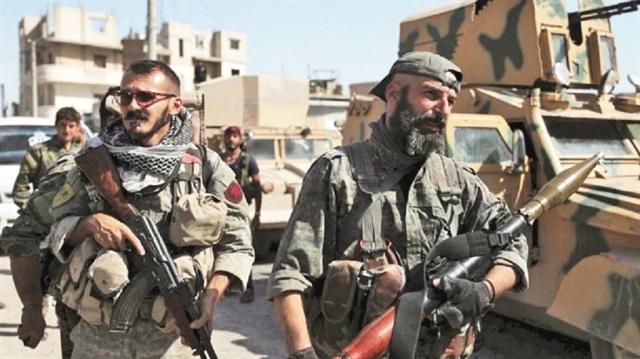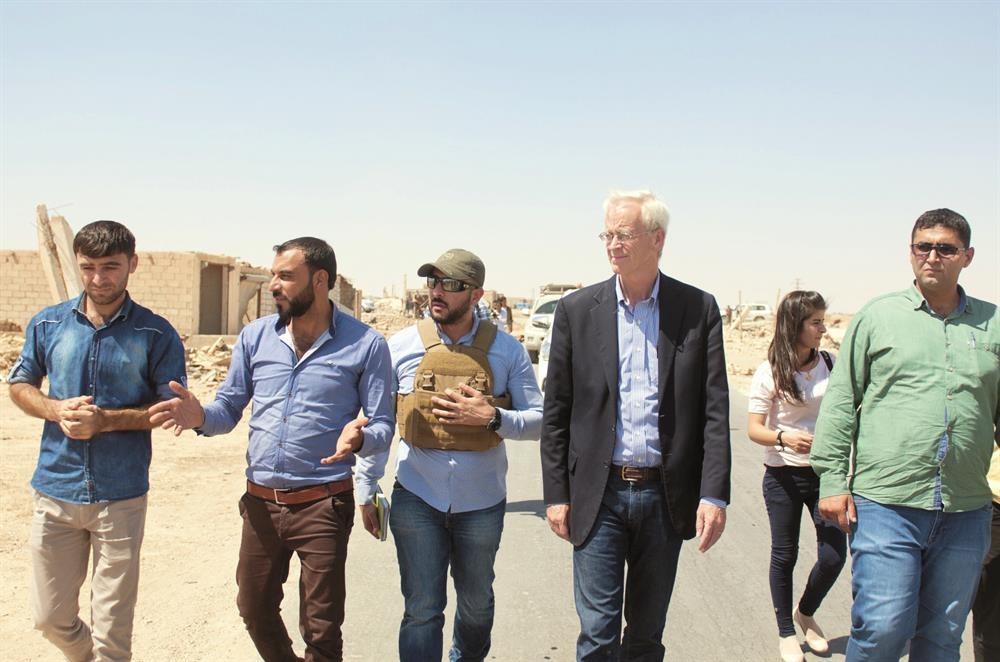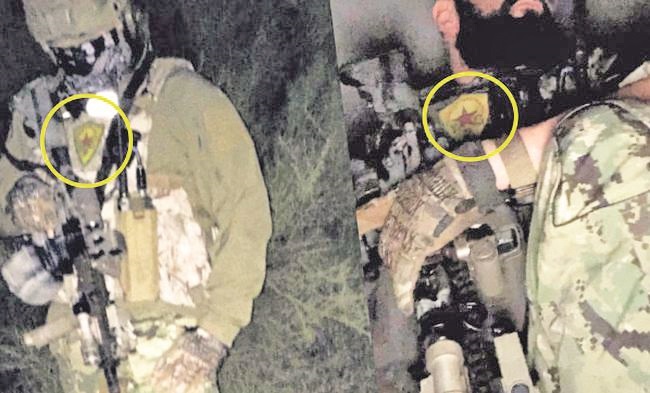
Washington did not present the PYD/YPG terror group in its annual terrorism report, and has continued to bolster reinforcements to the organization in order to form a terror state
The U.S. State Department omitted the PYD/YPG terrorist group from its 2017 Country Reports on Terrorism, which was released Wednesday. The previous edition of the report noted that Turkey views the Syria-based PYD/YPG as an extension of the PKK terror group.
With this move, Washington has made public its support of terrorism and its desire to split Syria. The activity in the region shows that Washington is laying the foundations for a terror state.
The U.S. has accelerated its arms deployment to the PYD/PKK terror group. The U.S. dispatched 250 heavy weapons and armored vehicles to the Democratic Syrian Armed Forces (SDF), which is dominated by the YPG, in June. Over 200 trucks loaded with supplies were sent to the SDF on Aug. 6, and another deployment of several armored vehicles and 250 trucks with weapons and ammunition was sent on Aug. 15.
The Syrian Observatory for Human Rights reported that over 1,200 shipments and trucks entered Syria in August alone.
The PKK/YPG claims that the U.S.-supplied weapons will be used in an offensive against Daesh, however the Syrian Observatory for Human Rights has reported that Washington is working to expand several bases in Kobani, Aleppo and Hasakah.
The PKK/YPG is extending its occupation to the east of the Euphrates with Washington’s support. Raqqa and Deir ez-Zor are under the siege of the terror group under the guise of fighting against Daesh. The terror group has also taken control of the region’s petrol and water sources.
The YPG-dominated SDF controls an area of about 53,000 square kilometers with a percentage of 28.6 of Syrian territory.
With the support of the U.S., a new administration was created for northeastern Syria during a meeting for the Syrian Democratic Council (SDC) in Ayn Issa in early September. The new administration has been dubbed a coordination body that will connect the self-administrations of the Kurdish majority areas and the civil administrations in Arab majority areas that have their own civil councils.
The self-administrations in the Euphrates, Afrin, and Jazeera region with the civil councils in Raqqa, Manbij, Tabqa, and Deir ez-Zor will be linked by the new administration.

William Roebuck, the U.S. ambassador to Bahrain, visited northern Syria on Aug. 26 amid negotiations between the so-called Rojava canton and Damascus over the future of the region.
“We are prepared to stay here, as the president (Donald Trump) has made clear,” Roebuck said during his trip.
James Jeffrey, the former U.S. ambassador to Turkey who was named U.S. special representative to Syria on Aug. 17, echoed Roebuck’s sentiment as he declared that Washington would remain in the region until it was completely cleared of Daesh.
The U.S has supplied the PYD terror organization and its armed wing, the YPG, with more than 5,000 truckloads of weapons to allegedly use in the fight against Daesh, despite Ankara’s warnings that the fact they are the Syrian offshoots of the PKK terror organization.
The Washington administration, which intends to maintain a permanent presence in Syria, has completed the construction of three advanced radar systems in Syria’s Hasakah-Tal Baidar countryside along with the Ayn al-Arab and Sarrin regions, and has set up 13 portable and fixed observation-intelligence radar systems.
Pentagon’s preparation for a no-fly-zone indicates that the U.S. administration also wants to interfere in Turkey’s military operations to ensure the safety of PKK terrorists after Ankara’s successful ops conducted in Syria’s Hasakah, Qarrah Chouk Mountains and Iraq’s Sinjar.
Sean Ryan, spokesperson for the U.S.-led Coalition against Daesh stated: “The Coalition installs satellites or other necessary equipment wherever needed within our area of operations.”
With its initial base establishing activities that were initiated in October 2015, Washington set up two air bases in al-Hasakah, and eight operational military bases in Raqqa and Manbij. Since July 2017, the U.S. has established five new bases, two of which were constructed in Manbij and close to the Euphrates Shield area. Two military bases were also established southwest of Tal Abyad.
It has been found that the U.S. works with Castle International, an American giant in the international military services marketplace, in Syria.
Specialized in aviation and medical support, Castle International mercenaries are employed by the U.S. in order to fight alongside YPG/PKK terrorists in Syria. Castle International’s social media accounts posted photographs of heavily armed commandos fighting and training beside YPG/PKK terrorists.







